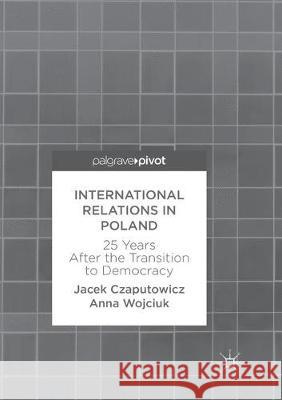International Relations in Poland: 25 Years After the Transition to Democracy » książka
topmenu
International Relations in Poland: 25 Years After the Transition to Democracy
ISBN-13: 9783319868905 / Angielski / Miękka / 2018 / 173 str.
International Relations in Poland: 25 Years After the Transition to Democracy
ISBN-13: 9783319868905 / Angielski / Miękka / 2018 / 173 str.
cena 212,02 zł
(netto: 201,92 VAT: 5%)
Najniższa cena z 30 dni: 210,55 zł
(netto: 201,92 VAT: 5%)
Najniższa cena z 30 dni: 210,55 zł
Termin realizacji zamówienia:
ok. 20 dni roboczych.
ok. 20 dni roboczych.
Darmowa dostawa!
Kategorie BISAC:
Wydawca:
Palgrave MacMillan
Język:
Angielski
ISBN-13:
9783319868905
Rok wydania:
2018
Wydanie:
Softcover Repri
Ilość stron:
173
Oprawa:
Miękka
Wolumenów:
01











